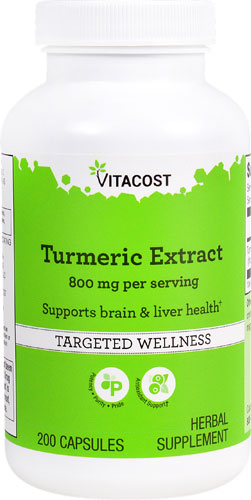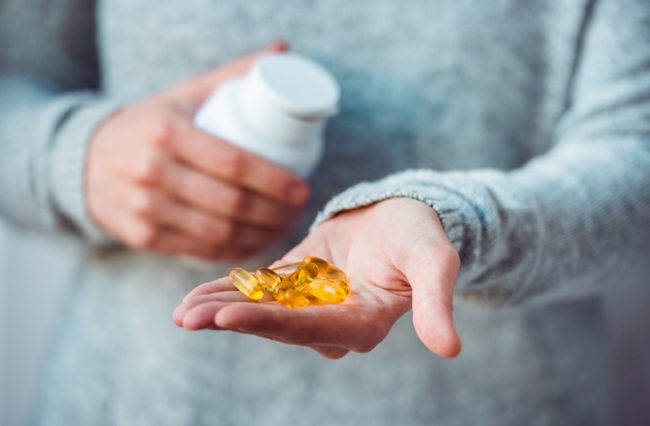One of the beauties of setting New Year’s resolutions is that it prompts people to peer not only backward and forward but also inward—a vital place that can reveal a wealth of information about our health.
Meaning, when we tune in to ourselves, we can begin to decode symptoms and recognize which parts of our system might need a little more love and attention or a boost of extra nourishment—whether it’s through a lifestyle switch to reduce afternoon headaches or nutritional supplements to naturally bolster digestion.
But when it comes to the latter, it can be difficult to know which supplements to take—to say nothing of how to do so smartly.
This year, make a point to do more than toss a bunch of “those sound promising” bottles in your basket, cross your fingers and hope for the best. Here are 5 essential things to consider before taking new supplements—and why they can be a boon for your inner and outer well-being:
1. Discuss with your doctor
Herbal supplements, vitamins and minerals—if they’re natural, why even bother mentioning them to your doctor?
For myriad reasons, it turns out. Mixing certain medications with supplements—see #3—may lead to a number of health hazards, while the necessity of some supplements might require a blood test. What’s more, some dietary aids might generate adverse side effects that require medical attention. Pregnant women and nursing mothers, meanwhile, need to be particularly cautious about the supplements they ingest. In other words, that ‘check with your doctor’ warning on most bottles is more than just a hollow suggestion.
2. Figure out which type of supplement is right for you
Given the surge of popularity in supplements, deciding which form to take can seem like a daunting endeavor—there are more varieties than ever now available. Should you go with liquid-gels or chewables? Gummies or powders? Pills or sublingual dissolvables? Here’s the gist of what you need to know before you make a purchase:
Consider your tummy. If you have digestive difficulties, you might be better off with a capsule or alternative form rather than a hard tablet: capsules, after all, are more easily broken down in the stomach, while liquids, powders or chewable forms are a more palatable way to obtain the supplement’s benefits. (They’re also a more agreeable choice for those who struggle with swallowing pills.)
A number of botanical supplements—such as goldenseal, yellow dock and yarrow—tend towards the bitter side; thus, look for them in capsules as well; use the same rule of thumb with B-complex vitamins, which some find unpleasant.
Other botanicals, however, can be quite the treat in the form of herbal tea (think: mint, chamomile, ginger and licorice), and the tactile experience of tasting the herbal compound may assist in support. Chamomile tea, for one, can have a calming effect on your mouth, esophagus and stomach, while ginger feels consoling when suffering from a stomachache.
When it comes to fats like omega-3s, seek out liquids rather than capsules. Why? Two words: Greater intensity. One tablespoon of Vitacost’s Organic High Lignan Flax Oil, for example, offers 7,420 milligrams of omega-3 fats. Softgels, on the other hand, provide just 1,060 milligrams. To phrase it differently, you would have to take 14 capsules to obtain the same amount.
And when it comes to minerals like calcium and magnesium, opt for liquids, powders or chewables. Zinc is a favorite chewable during under-the-weather seasons, in part because positioning the mineral against the mucous membranes of your throat and tonsils can organically encourage a sense of relief and comfort.
3. Consider the medications you’re presently taking
Certain medications and nutritional supplements simply don’t mix. If you’re taking an antidepressant, for example, you’ll want to avoid L-tryptophan, which, with its potential ability to heighten serotonin levels, may engender unwelcome, even detrimental side effects.
Meanwhile, the National Capital Poison Center urges people taking the blood thinner Warfarin to stay away from ginkgo, evening primrose, glucosamine or licorice—all of which may increase bleeding. St. John’s Wort has also been associated with a diminished effectiveness of calcium channel blockers and digoxin—a drug administered for heart failure. That is to say, heed #1 and speak candidly with your doctor and pharmacist. Which brings us to our next point…
4. Do your homework
We wouldn’t give our child or pet a supplement or food that may present a health risk—and the same dictum should hold true when it comes to you.
But rather than bemoan the idea of sifting through information, consider the task another opportunity to glance inward and hone what your body is trying to tell you—and you alone. Just because your best friend claims that dandelion tea eased her bloating, for example, doesn’t mean it will have the same impact on you. And what if you can’t bear the taste of it?
In short, examine the pros and cons of the supplements you plan on taking, assess whether you should aim to alter your diet to fill the nutritional gap instead and get a solid handle on the potential side effects you may experience. (Two good resources that’ll enable you to make informed choices are the National Center for Complementary and Alternative Medicine and the Office of Dietary Supplements.) Knowing what you’re putting in your body—and the why behind it—will empower you to make other changes in your life (and perhaps meet another one of those goals you set at the start of January).
5. Invest in quality products
You might cut corners when it comes to name-brand cereals and dish soap. This, however, is your health we’re talking about—meaning when it comes to supplements, now is not the time to search for the cheapest thing on the market.
The reasons behind this are manifold. As Consumer Reports points out, “supplement manufacturers routinely, and legally, sell their products without first having to demonstrate that they are safe and effective,” and, as a result, “the supplement market isn’t as safe as it should be.” And who can forget the slew of lawsuits when it was discovered that the now-banned ephedra—particularly forms imported to the U.S.—held harmful, even fatal potential?
Before purchasing or taking new supplements, be sure to obtain reliable information about the manufacturer and be especially guarded about supplements produced outside of the U.S. “Herbal products from some European countries,” the Mayo Clinic reports, “are highly regulated and standardized. But toxic ingredients and prescription drugs have been found in supplements manufactured elsewhere, particularly China, India and Mexico.”
Further, consistently check alerts and advisories, as a number of supplements are under regulatory review, and look for the GMP (Good Manufacturing Practices) certification on the label. Established by the National Nutritional Foods Association, this endorsement indicates that a nutritional supplement has been screened for contaminants and quality-tested.
Finally, check in often with that interior part of yourself. Your body knows when something isn’t right for you, and most of the time, it’ll do what it must to tell you. Go inward indeed—and with your health aced, you can then go, well, skyward.
*These statements have not been evaluated by the FDA. These products are not intended to diagnose, treat, cure or prevent any disease.





